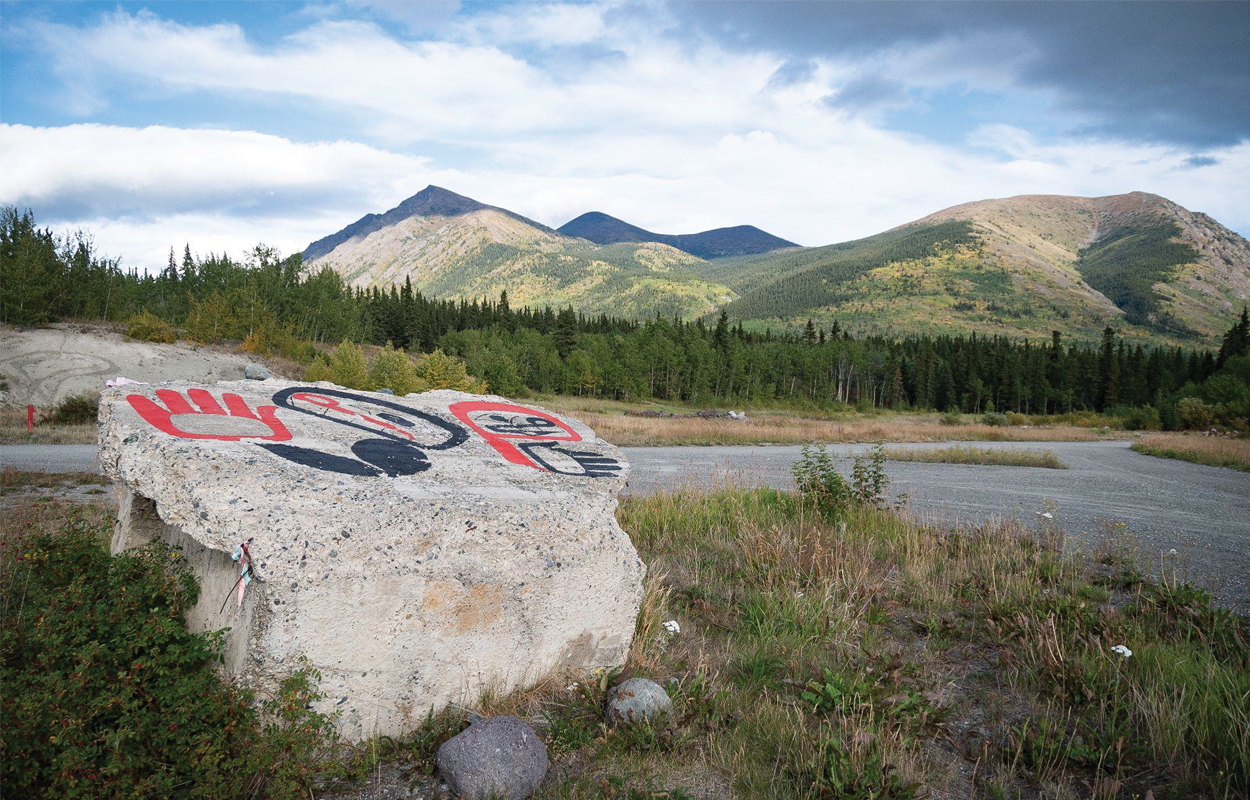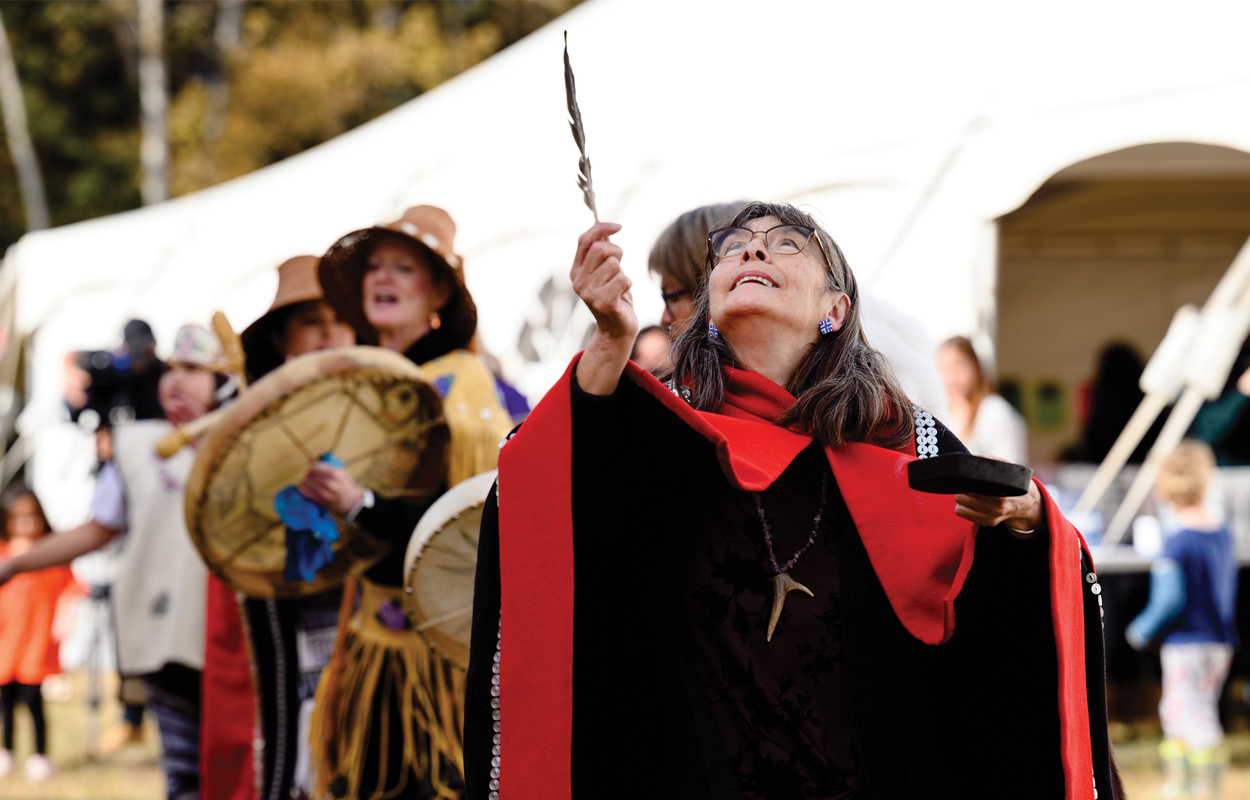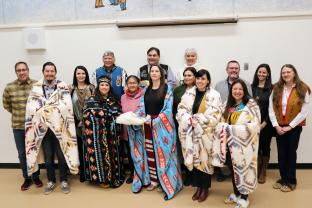
Pathways: Building a new education system for all Yukoners
Last year, as students were gearing up for a new school year in Dakwäkãda (Haines Junction), the sockeye salmon returned to Klukshu.
After decades of dwindling runs, the salmon came back to this Champagne and Aishihik First Nations fishing village in record numbers.
While the salmon’s return signalled a renewal of culture and tradition, the new school year brought the promise of more culture, language and knowledge in the classroom under the new Yukon First Nation School Board.
In February 2022, eight school communities voted to have their local public schools join the new board, including residents of Dakwäkãda for their St. Elias Community School. In August 2023, three more schools voted to join.
Fulfilling a vision
At Champagne and Aishihik First Nations, Dän nätthe äda K’úkhįá (Chief Barb Joe), believes the new school board realizes the vision of Together Today for our Children Tomorrow.
“This is the vision that was set out fifty years ago and it’s what guides our work today,” she says.
Jeanie McLean, Minister of Education, agrees. She says two-thirds of Together Today for our Children Tomorrow was focused on education.
“There was a deep understanding that education would be key to the future of Yukon First Nations,” she says.
Joining the school board allows Yukon First Nations to have shared authority of the operations and policies of schools on their traditional territory.
“The authority and responsibility to educate our children is part of our inherent right as a self-governing First Nation,” Dän nätthe äda K’úkhįá says. “It puts the power back in the hands of our community.”
She says involvement with the school board will allow them to integrate dakwanje (Southern Tutchone) and dan k’e (our way) into the curriculum, bringing First Nations’ holistic, multi-generational, and land-based approach to education into the school system.

Building a new system
Melanie Bennett is the Executive Director at the Yukon First Nation Education Directorate. She says Yukon First Nations have been fighting for better education for decades, but in recent years they are driving real changes.
In 2016, the Joint Education Action Plan between all 14 Yukon First Nations, the Government of Yukon and Government of Canada was stalled, and the education performance gap between First Nations and non-First Nations students was widening further by the year.
The Chiefs Committee on Education decided to take action and began talking to Elders and Knowledge Keepers about creating a First Nations-led education system.
Melanie says First Nations started imagining what a new system could look like.
“It really had people thinking,” she says. “Some of our Knowledge Keepers asked: Do we know what our system is anymore? Because we've all been assimilated through residential schools and an English immersion system.”
Using existing legislation under the Education Act, Yukon First Nations recommended that the Chiefs Committee on Education create a First Nation School Board.
Changing a mindset
Melanie explains that First Nations want an education model rooted in their ways and they want authority over it.
For First Nations, learning is more relational and it's over a longer period of time.
She says it’s a very different approach than the current model, which is based in colonialism.
“Our existing education system is basically an industrial model,” she explains. “Put the grades through to an academic standard, come out, and then you go off into the big wide world and figure it out.”
Melanie says the First Nations approach to education can benefit everyone, but it requires changing mindsets.
“It isn't just First Nations who are assimilated into this model, it's society as a whole,” she says. “There is a picture of what education should look like, and so when you veer off from it, it can be very difficult.”
Repairing relationships
Veering off the standard path is exactly what Melissa Flynn, the Executive Director for the Yukon First Nation School Board, and her team are trying to do.
Reflecting on her first year at the school board, Melissa says it’s been a whirlwind.
“It’s been a lot of travelling, eating meals together, and getting to know each other,” she says. “Our job is to really listen to the aspirations of the community,”
Melissa says empowering communities is a major part of the school board’s strategic plan.
One shift the school board is making is to centre their decisions around learners.
“We're making sure families are included in decision making and we're listening to them,” says Melissa. “We want to make sure that families and students feel safe and comfortable in the schools.”
Melissa says it will take time to repair relationships with Yukon First Nations.
“Historically, the education system has not had a very trusting relationship with each
community,” she says. “We’re still building trust.”
Melissa FlynnWe’re looking to the community and the First Nations governments to guide us and lead the actions taken at the local schools.
Empowering Yukon First Nations
Under the First Nation School Board agreement, First Nations governments have more authority and control over education.
Melissa says schools are already restructuring their school year to reflect their cultural ways.
This year, Nelnah Bessie John School in Beaver Creek flipped their calendar. Students started school at the end of July, so they can have multiple, extended breaks throughout the year to spend time with their family engaged in cultural activities. Champagne and Aishihik First Nations established its community committee, and they will have shared authority to manage the school’s operations including school plans, policies and local and First Nation language programming.
Dän nätthe äda K’úkhįá says the committee ensures the community can support Indigenous students by encouraging participation from family members.
Reconciliation through education
Minister McLean says education is a key path to reconciliation that benefits all Yukoners.
“The Department of Education is working hard to establish a more inclusive public education system in the Yukon and ensure that schools offer all students opportunities to learn about Yukon First Nations traditions and ways of knowing, doing and being.”
She says the school board has a significant role to play in this.
Like the salmon’s return to Klukshu, the new school board brings the promise of a brighter future for the next generation.
First Nation School Board
The First Nation School Board was established in February 2022, after eight schools across the Yukon voted to join the board.
Through community committees, the board grants Yukon First Nations shared authority, with the Government of Yukon, over education within their Traditional Territory. Board-run schools continue to follow the British Columbia Curriculum, but tailor programming, lesson delivery and assessments to reflect Yukon First Nations worldviews.
Schools under the board take a student-led approach to learning. Learners are at the heart of every decision made, followed by families, then the land, school teams, and First Nations and Community Committee moving outwards to Elders and Knowledge Keepers.
In 2023, three more Yukon schools voted to join the board. There are now 11 public schools in the territory under the Yukon First Nation School Board.

